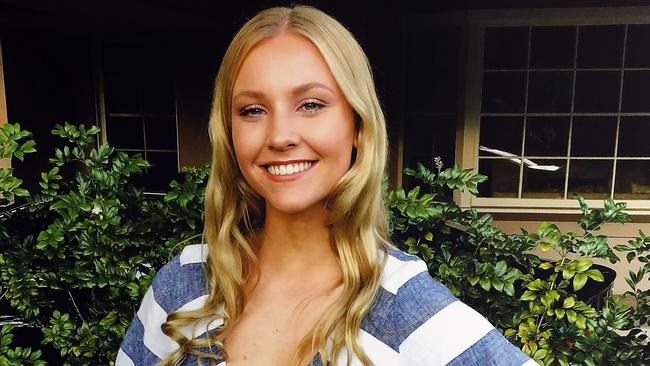We need to talk about youth suicide


Recently I received an email from my Year 12 boy’s school principal asking all parents to check in on their kids; to see if they were OK, talk to them; and to think about their friends too – anyone who may be of concern. To let the school know about any worries we – they – might have. Because there have been youth suicides this year that have torn the heart out of various communities. It feels like Covid’s hidden trauma.
Some families have bravely gone public in an attempt to prevent similar tragedies. Claudia Neale, a Year 12 student from an independent school on Sydney’s leafy north shore, recently took her own life. She was an A-grade, scholarship student, captain of the swimming team. Her heartbroken father, Matt Neale, recently spoke out because he wants to help others facing similar situations. “If I had a chance to speak to [Claudia] right now I’d say it’s a totally different place when you finish school,” he told The Sunday Telegraph.“Life changes and it does change for the better. It just opens up what you can do. You don’t have to do physics any more.”
“Girls thought it was OK to be unkind without realising that [Claudia] was struggling and internalising it,” her older sister Gabby said. I do not know Claudia’s particular circumstances but do know that girls often bully through exclusion and they may not realise how painful it can be. This is a plea to be kind, thoughtful, caring. In a perplexing world of uncertainty, this is a crushing time.
LivingWorks is an organisation that trains people in suicide first aid skills, teaching them how to identify people at risk in a quick, online training program. CEO Shayne Connell says it takes a whole community, a whole village, to keep people safe from suicide, and this first aid course teaches the basics of how you can respond to someone in need.
As someone whose mother died this way, can I just say, if you are thinking of it, if you have a plan, please talk to someone. You may feel viciously alone with your pain but you are not. There are so many people around you who love you and want to help, so much. Please let them in. I wish my mother had. She could have been helped with her pain – and it wasn’t in the end vanished, it was carried within those she left behind.
Our Year 12 students are leaving school now. Some have had the usual rituals cancelled, some are crossing fingers for formals and schoolies of some sort. Everyone is coping, or not, in their own way. These are uniquely difficult times. Claudia’ s parents say their daughter was struggling with Covid-19 restrictions that limited her swimming and put a dampener on her 18th birthday celebrations, as well as those of her friends. She also had depression. “People don’t realise what’s going on in other people’s lives, and the outward appearance that people see is not necessarily what they’re really going through,” her father, Matt, explained.
He said kids today rely so heavily on “electronic talking” – but we all need to pick up the phone and ring. Keep talking. Not just by text. Because while things can appear normal, turmoil can be bubbling under the surface. “We must reach out to each other,” Matt concluded. Yes. I wish I had more with my own mother. Just sat down, and talked.
Lifeline 13 11 14; Kids Helpline 1800 55 1800; livingworks.net



This week, to something I’ve been receiving reader letters about, and have been reading tweets on, and hearing whispers of horror among parents. It involves young people from not only cities but country towns as well, and has resulted in a groundswell of hushed anguish and shock in communities across our nation. It’s the trauma of suicide, youth suicide in particular.